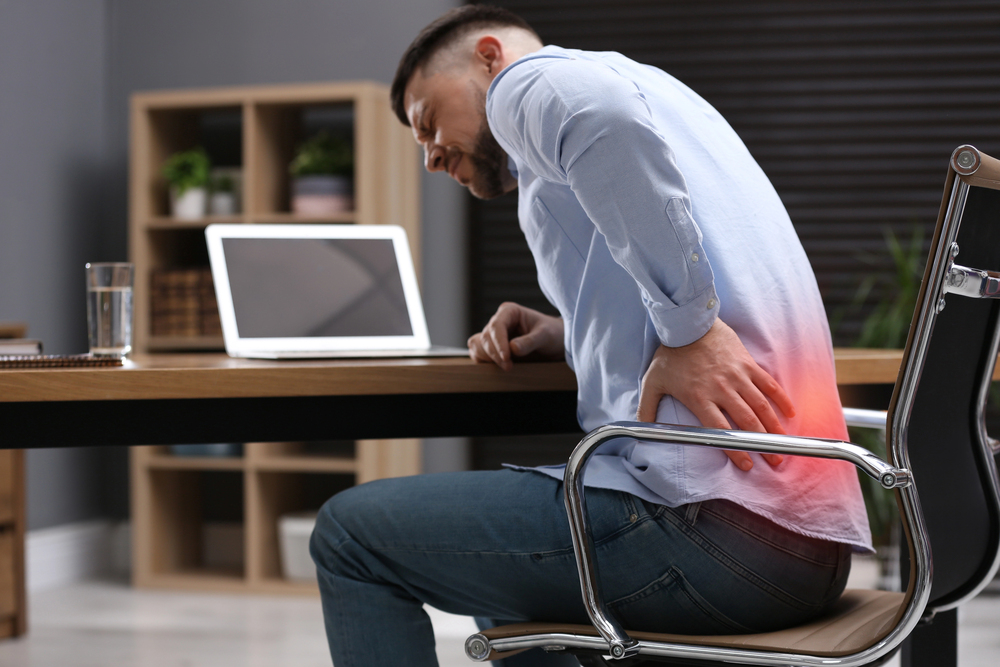 There are lots of great advantages to having a home office, from being able to set your own hours and saving time on commuting, to spending less money on business premises and having less distractions getting in the way. However, when setting up work space in your house, you need to remember that safety — both your own personal well-being, and that of all your vital work data — is just as important in the home environment as it is in a warehouse, large office, or on the road.
There are lots of great advantages to having a home office, from being able to set your own hours and saving time on commuting, to spending less money on business premises and having less distractions getting in the way. However, when setting up work space in your house, you need to remember that safety — both your own personal well-being, and that of all your vital work data — is just as important in the home environment as it is in a warehouse, large office, or on the road.
How often do you stop to think about your own health when you’re on the job, or whether or not your computer is protected from viruses and other issues? Unfortunately, millions of people around the world suffer from workplace injuries every year, many of which occur due to simple things such as falling objects or trips and falls. Similarly, the same kinds of numbers of people are also faced with devastating effects when their computer crashes or important information is stolen.
One of the best ways you can protect yourself and your devices from harm is being aware of the most common risks that crop up, and having a focus on safe work practices at all times. To help you stay protected this year, read on for some of the issues you need to be aware of, and some tips you can utilize to avoid them happening to you.
Beware of Viruses
Nasty viruses can have a very negative impact on your productivity, whether they’re ones you pick up yourself or those that infect your computer.
Watch out for Colds and the Flu
For starters, in order to keep your personal health at an optimum level year round, it’s important to wash your hands and wipe over other surfaces that are prone to collecting germs (such as computer keyboards and telephone headsets), on a regular basis. Just because you’re not in the office around other people who might be sick, that doesn’t mean you’re not coming into contact with germs. Your children might bring home the flu bug from school or other places.
In addition, always take the time to rest and recuperate if you come down with something, as that way you’ll heal much more quickly than if you just “soldier on.” Just because you work from home doesn’t mean you can’t take sick days. Trying to do work while you’re sick will probably decrease your overall work quality and cause more issues. Plan possible sick days into all your project pitches and use those days to get ahead if you don’t actually get sick.
Vaccinate Your Computer From Viruses, Too
In order to keep your computer systems safe from viruses you also need to put some safety precautions in place. For instance, you should install good quality antivirus software such as that sold by Trend Micro on your devices; also, use anti-spyware, anti-malware and anti-spam software. Additionally, you should make sure your computer has a firewall installed. You can either turn on the software that comes with many devices, or pay extra for a higher-level, more comprehensive service.
Beware, too, of opening emails and attachments from any people you don’t know, and make sure that your Wi-Fi is password protected. You should also use proper passwords on all of your systems and any websites you have to login to. Codes should be at least eight characters in length, and include a variety of lower case and upper case letters, plus numbers and symbols. Don’t forget to change your passwords on a regular basis as well; around every two to three months is best. Just because you work from home doesn’t mean hackers aren’t interested in your data too.
 Steer Clear of Heavy Loads
Steer Clear of Heavy Loads
Heavy loads are a recipe for trouble for both you and your computer.
Use Proper Lift Techniques and Be Careful
To keep your work environment safe and productive, you should do everything you can to avoid heavy loads. A huge number of office accidents every year are caused by heavy objects falling and injuring workers, or because people try to move bulky, awkward, or weighty items by themselves.
To avoid injuries, analyze your home office space and see if any heavy items are sitting up high where they could potentially fall and cause you a head injury or harm to another part of your body. Additionally, be very careful anytime you need to move objects.
If you can’t lift an item easily or if carrying it requires you to bend at awkward angles or reach up high to get it down, stop what you’re doing and get some assistance. It’s much better to enlist the help of a family member, or utilize a trolley or other device, than to put yourself out of action for days or even months due to a back injury.
Brace Your Computer for Heavy Loads, Too
Your computer systems are also at risk of heavy loads weighing them down. If you find that your computer crashes often, it may well be that this is because it is trying to handle too many documents or tasks without enough RAM (random access memory) to do the “heavy lifting.”
If you notice that your CPU usage (a statistic you can check by opening the Task Manager) is sitting in the 80 or 90 percent range frequently, then close all non-system processes that use up a lot of space. Furthermore, it is also often necessary to make more RAM available so that your computer doesn’t have to work so hard. Most computers can have additional RAM added at an affordable cost.
Find a Home-Based Business to Start-Up >>> Hundreds of Business Listings.

















































